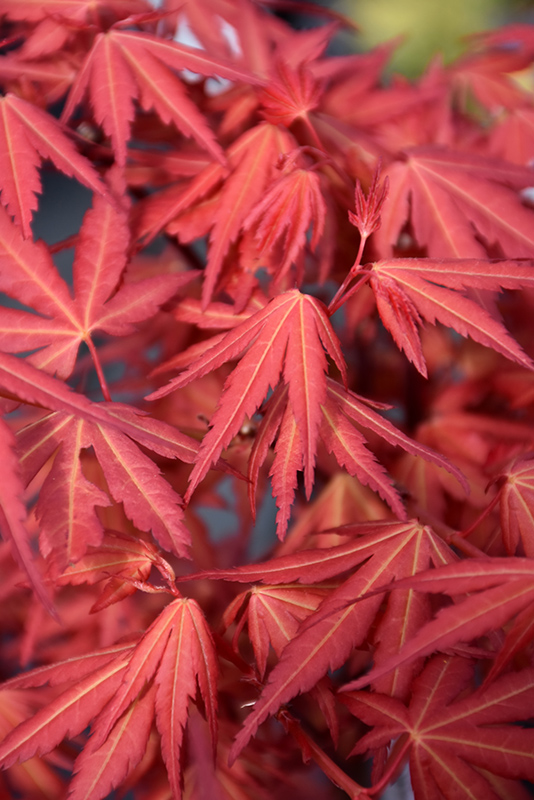20 feet
15 feet


5a
Pacific Rim® Collection
Iseli
First Flame® Maple is primarily valued in the landscape for its ornamental upright and spreading habit of growth. It has attractive red-variegated green foliage with hints of orange which emerges scarlet in spring. The lobed palmate leaves are highly ornamental and turn outstanding shades of orange, brick red and crimson in the fall. It produces red samaras from early to mid fall. The rough gray bark and red branches add an interesting dimension to the landscape.
First Flame® Maple is an open deciduous tree with a strong central leader and an upright spreading habit of growth. Its relatively fine texture sets it apart from other landscape plants with less refined foliage.
This is a relatively low maintenance tree, and should only be pruned in summer after the leaves have fully developed, as it may 'bleed' sap if pruned in late winter or early spring. It has no significant negative characteristics.
First Flame® Maple is recommended for the following landscape applications;
- Accent
- Mass Planting
- General Garden Use
First Flame® Maple will grow to be about 20 feet tall at maturity, with a spread of 15 feet. It tends to be a little leggy, with a typical clearance of 3 feet from the ground, and is suitable for planting under power lines. It grows at a slow rate, and under ideal conditions can be expected to live for 80 years or more.
This tree does best in full sun to partial shade. It prefers to grow in average to moist conditions, and shouldn't be allowed to dry out. It is not particular as to soil pH, but grows best in rich soils. It is somewhat tolerant of urban pollution, and will benefit from being planted in a relatively sheltered location. Consider applying a thick mulch around the root zone in winter to protect it in exposed locations or colder microclimates. This particular variety is an interspecific hybrid.
